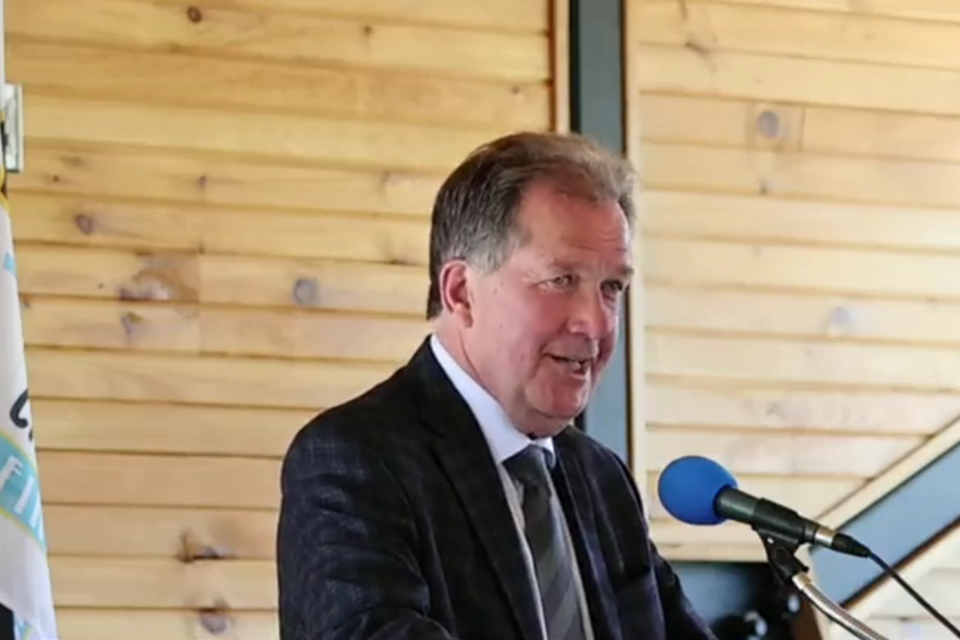First Nations leadership is calling on Minister George Pirie to be a true partner.
Mushkegowuk Grand Chief Alison Linklater challenged the Timmins MPP and Minister of Mines during the Mushkegowuk Annual General Assembly to scrap Bill 71 and work with the communities to find a better way forward.
“I have a challenge for you. Withdraw your bill and work with us,” said Linklater. “Create a true partnership based on our treaty.”
The minister faced questions from community members and leadership at the event in Cochrane on Tuesday with a focus on Bill 71, which was recently approved and saw changes made to the Mining Act.
RELATED: Royal assent stamped on Ontario's mine building bill
Pirie called the bill a way to streamline the bureaucratic steps companies face to open a mine, but several speakers had doubts about the commitment to consultations with Indigenous communities.
“We are all for partnerships, we are all for economic development but not at any cost,” said Chief Keith Corston from Chapleau Cree First Nation. “We welcome economic development, we welcome all these opportunities, but we also hold our land dearly, and the waters which to us is much more important than any economic gain.”
Pirie said later in an email statement that the Building More Mines Act does not remove the need to consult Indigenous communities and offers the communities an opportunity.
“The Building More Mines Act is about making government work at the same pace as business so mining companies can do what they do best, build more mines,” said Pirie. “These changes made to the Mining Act will not compromise Ontario’s world-class environmental standards or how we consult with Indigenous communities on mining projects, this is about improving ministry processes to save companies time and money.”
Pirie used the example of Canada Nickel’s work with Taykwa Tagamou Nation and the fiscal advantages First Nations can access through similar partnerships.
Taykwa Tagamou Nation and Canada Nickel signed an MOU detailing how mining would operate on their lands.
SEE: Canada Nickel signs mine fleet financing agreement with Taykwa Tagamou Nation
That included training and employment opportunities for members, as well as the use of the equipment which is owned or financed by Taykwa Tagamou Nation.
“The key is ownership, and that’s what makes the difference,” said Pirie to the assembly. “The children of the communities have benefited the most with a secure future, with employment, with income and I think that is what this is all about.”
Corston said that while Pirie's presentation focused on economic impacts, land conservation could be a priority for communities as well.
“You should not be putting up bills that affect us without us sitting at the table with our drafters,” said Corston. “There are nations that don’t want to have hundreds of millions of dollars, they’re more interested in protecting their land.”
Linklater said that Mushkegowuk leadership understands what needs to be done, but does not agree with the bill as written.
“That bill does not reflect responsible resource development. It puts our lands at risk, it puts our waters at risk,” said Linklater. “That bill doesn’t show in true faith what a partnership means.”
